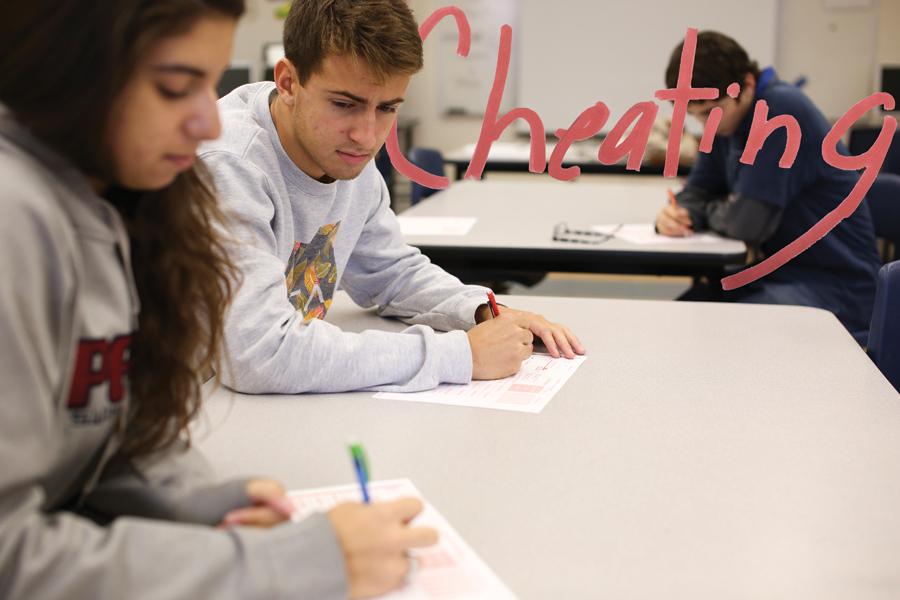Blurred lines of cheating: is there any solution to cheating in school?
A recent poll shows that the overwhelming majority of PHS students have cheated in school since their freshmen year.
Sacrificing weekends and afternoons in favor of studying seems to be the typical way a hard-working high school student spends their free time.
But when pressures mount and time disappears and 4.0 GPA slips out of reach, a good student might be tempted to sneak a peek at another student’s work.
Only one of the many pressures of high school, cheating has plagued the school system for years, but is taking on a new life in the digital age at Perry.
The accessibility of information has blurred the lines between what is cheating and what is “research.” To some people, cheating does not seem like such an issue, yet 80 percent of students polled claim they have cheated on an assignment at PHS.
What exactly does cheating mean to students?
Junior Riley Marshall defines cheating as: “purposefully and knowingly taking someone else’s answers when you know that the consequences are bad.”
Freshman Cole McClure believes that: “cheating is when people share their information with other people even if [the other person doesn’t] deserve it and they haven’t worked for it at all.”
Perry students have many differing views on cheating: 36% of students do not care if others cheat, 42% believe that cheating is wrong but not bothersome, and 8% believe that cheating is essential in being successful in school. Only 13% of students believe that cheating is a punishable act.
However, a new breed of cheating has made its way into schools. It has only given cheating a tighter grip on the minds of students. Enter the epidemic of “sharing” homework.
“Sharing” has become a common practice in schools, and is put under the disguise of helping a friend with their homework or “lightening someone else’s load.” But what some students think is sharing, is actually just plain cheating.
Junior Lindsey Vance believes that “sharing is helping a person. If you can explain how you got the answer [and learn from it], then I don’t think that is cheating.”
Sharing homework has become a social pressure. Smart students that complete their homework often feel pressured to “share” their work with their peers.
Other pressures are also weighing upon the minds of students, but they may not understand the gravity of the risk they are taking. When a student is caught cheating, they will receive a referral with administration. The second time it happens in the same class, a student risks being dropped from the class with a failing grade for the semester, according to assistant principal Heather Patterson.
“I wouldn’t say that here at Perry that we deal with it a lot,” Patterson says. “I probably see it every six days.”
Marshall believes that “if you are an upperclassman and you are cheating, it is usually because you feel the pressure to get good grades in order to get into college.”
While some students act out of desperation, many students cheat without even realizing that it is wrong. Even amidst these pressures, many students still abstain from cheating.
“It is more rewarding not to cheat and to know that you did it all by yourself,” senior Raevin Teran-Richardson believes.

Senior Molly Ogden will be covering student features and the Perry arts department this year, as well as the occasional opinions and news piece. She is...




